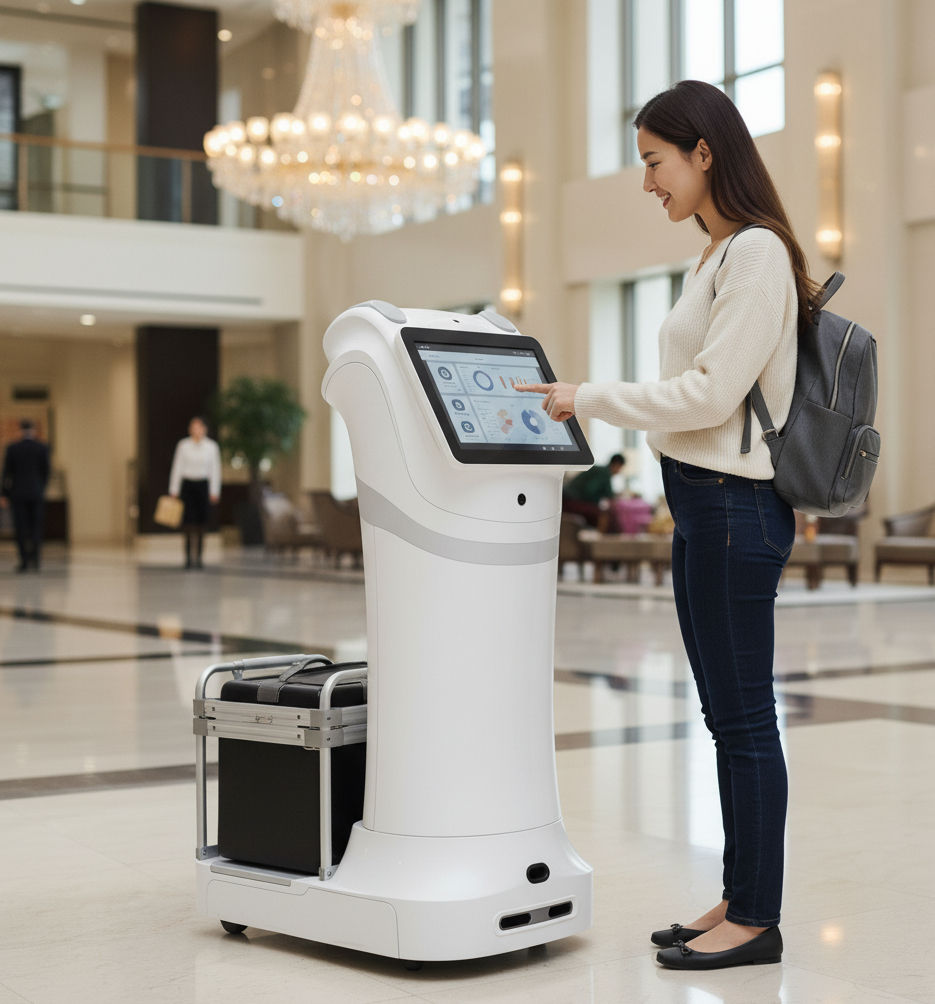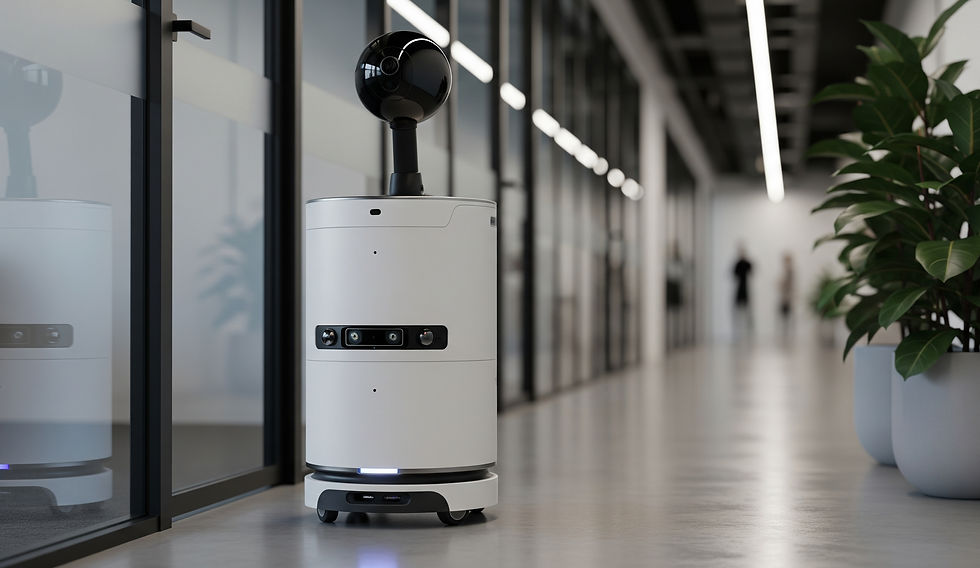Elevating Hospitality: How Vision AI and Robotics Are Redefining Guest Experience
- Darshan
- Sep 30, 2025
- 4 min read
When you think of hospitality, you imagine impeccable service, seamless check-ins, and pristine spaces. But here’s the surprising truth: human staff, no matter how skilled, can only cover so much — there are blind spots, delays, and inefficiencies that affect guest experience.
And here’s the kicker: most hotels and resorts have no way to consistently monitor or optimize these operations in real time.
Why Traditional Hospitality Operations Fall Short
From cleaning to delivery, staff often juggle multiple responsibilities. Manual monitoring means:
Delayed responses: Guests waiting for assistance or deliveries.
Inconsistent quality: Housekeeping and maintenance can miss issues between inspections.
High operational costs: Overstaffing to cover blind spots, yet still gaps remain.
Enter Vision AI + Robotics — a solution that gives your hotel eyes and intelligence, allowing robots to act like humans, but faster, smarter, and tirelessly.
A New Lens for Hospitality: Vision AI on the Move
Imagine a hotel where robots aren’t just moving boxes or cleaning floors — they see and understand their environment.
With high-resolution cameras and AI models onboard, robots can:
Detect unclean areas in public spaces.
Recognize when a guest is waiting for check-in assistance.
Identify spills, maintenance issues, or misplaced items.
Navigate safely through crowded corridors without supervision.
It’s not just movement — it’s intelligent behavior informed by vision, turning robots from tools into active participants in guest experience.
Where Vision AI Makes the Biggest Impact
1. Public Area Cleaning:
Robots equipped with vision can scan lobbies, hallways, and restrooms to detect dust, spills, or clutter. They clean intelligently, focusing on areas that need attention — reducing water, chemicals, and labor usage.

2. Remote Check-in & Assistance
Teleoperated robots guided by vision AI can greet guests, verify identities, and guide them to rooms, all while staff handle backend operations. This reduces queues and enhances first impressions.

3. AI-Powered Building & Asset Monitoring
Video analytics can continuously monitor elevators, hallways, kitchens, and service areas. AI detects safety hazards, asset misuse, or maintenance issues in real time, sending alerts for immediate action.

4. Autonomous Quality Control
Robots can inspect rooms, facilities, and even restaurant setups for cleanliness and organization, ensuring consistent quality without human fatigue or oversight gaps.

5. Restaurant Service & Delivery
Vision-enabled robots can navigate busy dining areas, deliver meals to the correct table, and avoid collisions with staff or guests — all while monitoring dining conditions and guest interactions.

6. Luggage & Linen Delivery
Automated luggage carts and linen robots can autonomously pick up and drop off items at guest rooms, using vision to detect doors, elevators, and hallways, ensuring smooth operations.

7. Guest Room Delivery & Assistance
From room service trays to amenities, robots can identify guests, recognize their requests, and deliver items with precision — enhancing personalization and convenience.

Under the Hood: How It Works
Edge AI Hardware
Onboard processors from NVIDIA and other leading giants allow robots to run deep learning models locally. This enables real-time decision-making without relying on cloud connectivity — crucial in high-traffic, indoor environments.
Deep Learning Models
Trained on thousands of images of hotel corridors, rooms, public spaces, and guests, these models allow robots to:
Segment floors, obstacles, and objects.
Recognize human gestures and interactions.
Detect maintenance issues or safety hazards.
Deployment Options
Autonomous cleaning robots for lobbies, gyms, and restrooms.
Quality Control robots for keeping the quality of the Hotel.
Teleoperated robots for concierge, check-in, and guidance.
Delivery robots for rooms, restaurants, and amenities.
No matter the use case, robots are not just moving things — they’re making decisions.
From Vision to Guest Satisfaction: Why It Matters
Enhance Guest Experience
Faster check-ins, cleaner spaces, and personalized service mean happier guests and higher ratings.
Optimize Operations
Staff can focus on complex tasks while robots handle repetitive or time-sensitive operations — reducing labor costs and errors.
Ensure Consistency & Safety
Vision AI detects issues before they become complaints — whether it’s a spill, broken light, or misplaced luggage.
In Short
Vision AI + Robotics brings a human perspective to automated operations.
Intelligent robots can clean, deliver, monitor, and assist, all autonomously.
Real-time decisions and observations improve guest experience and operational efficiency.
HENCE
If you’re a hotel operator, resort manager, or hospitality tech integrator, it’s time to rethink operations — not just as manual labor, but as a data-driven, intelligent service.
And Vision AI just gave us the lens to make hospitality smarter.
Let’s make hospitality intelligent.
Control One | Pioneering the Autonomy


Comments